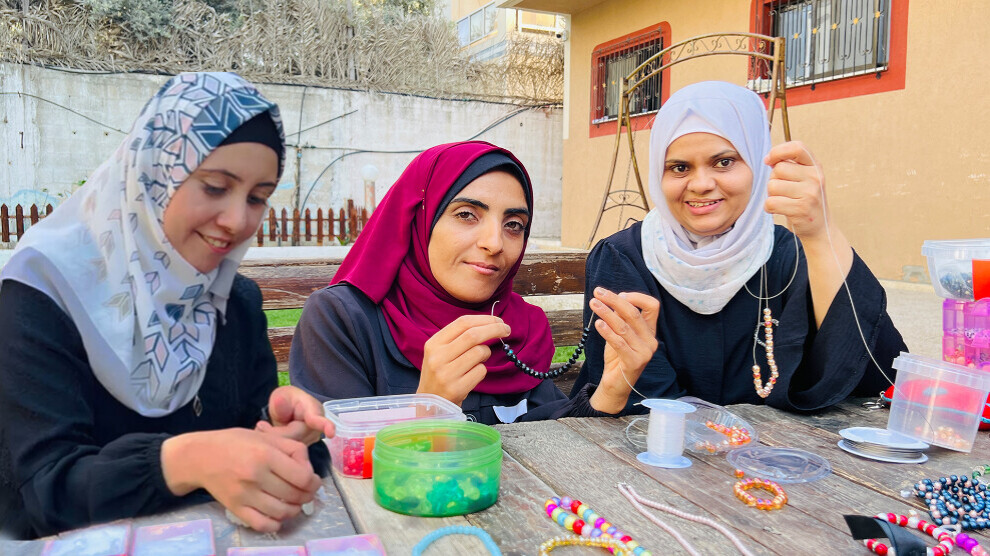‘Colored Threads’ project supports young women with special needs in Gaza
The “Colored Threads” project is a success and challenge story of young women with special needs in the Gaza Strip.

NAGHAM KARAJEH
Gaza- A group of young women with special needs started a project named “Colored Threads” to overcome difficulties faced by them, to show that they are an integral part of society and to stand on their own legs.
Fidaa Al-Wadiya, the group leader, graduated from the College Of Basic Education. After her graduation, she attended a graphic design course and received a certificate to find a job. “However, our society thinks women with special needs cannot work,” she said.
Speaking about their project, she said, “One of the organizations supporting people with special needs announced a competition. Our project won the competition among 100 projects and we received funding to put our project into practice. We could realize our dream thanks to this funding.”
They develop their skills
The members of the group make and sell handicrafts as part of the project. “We attended a course to develop our skills. Everyone in the group makes different handicrafts. Now, we market our products by participating in exhibitions.”
Before starting the project, Fidaa Al-Wadiya faced many social challenges that prevented her from achieving her dreams. “When I made job applications, I was given job application forms asking, ‘Do you have a disability’. I was always rejected because I wrote ‘Yes’ despite having the qualifications and experiences requested by companies. I had a journey of steadfastness and struggle over the past years until I was able to confront all obstacles and difficulties.”
The group members face challenges in finding raw materials due to Israeli siege and high prices of raw materials. “Despite all the challenges, we now sell our handicraft products outside of Palestine and get more orders every day.”
Fidaa Al-Wadiya says the women with special needs suffer from the difficulty of integrating into society because their talents and capabilities are ignored by society. “The stereotypical culture has played a role in marginalizing them. Some families do not allow their daughters with special needs to go out and this causes girls with special needs to suffer from psychological stress and deteriorate their health.”
Her passion helped her to improve herself
Kholoud Al-Deeb, who suffers from a motor disability in her hands because of a medical error, managed to improve herself after many attempts. She passed the university exam although she has difficulties in writing. “I can write by using only my right hand. But I was determined to study but I was rejected and did not complete my education journey.”
Her skills in making handicrafts and her passion for preserving the Palestinian heritage opened the way for her to improve herself and achieve her dreams. “When we started the project and the project became famous among people, I realized that I was not disabled and I could realize my dreams,” she told us.
‘Our disability is not an obstacle’
Samah Al-Shendi, who suffers from a spinal cord disability, is another young woman in the group. “As soon as I joined the group, I felt more confident in myself. Despite the social challenges that I faced, my will and determination allowed me to achieve success. Our disability is not an obstacle to realize our dreams. We want to start our own business on handicrafts, provide employment opportunities to women with special needs and participate in international exhibitions and festivals to highlight our talents and creativity and market our products.”
